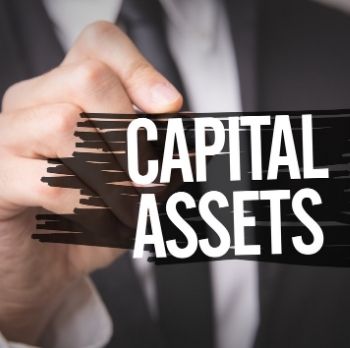A capital asset is something that you acquire with the intention of holding it and generating a return from it and not for the purpose of profit-making by sale.
For example, a residential or commercial property that you hold for a period and rent would be considered a capital asset, irrespective of whether you renovate it or not. A capital asset would also extend to land that you purchase and then develop and rent when complete. You can see that the definition centres around the ‘hold’ strategy, rather than selling in the short-term.
A ‘mere realisation’ refers to the gain you make from a capital asset.
If you eventually decide to sell the property that you purchased, held and rented for a period of time (as described above), and there was a profit due to a natural increase in value, this would be considered to be a mere realisation.
If, on the other hand, you bought a property with the intention of renovating it and selling it for a profit, that would be considered to be a profit-making transaction or scheme (which I’ll cover separately).
A mere realisation will be on the capital account, so you could access capital gains tax (CGT) concessions as a result.
CGT applies to any asset acquired after 20 September 1985, unless specifically excluded, such as your family home, car and other personal assets. Assets depreciated in a business are also excluded from CGT as they are counted against your revenue. As an Australian resident, CGT applies to all assets owned anywhere in the world. As a foreign resident, CGT applies to all taxable Australian property.
While you may be subject to CGT as opposed to income tax for any profits or gains made in a property development, you may be eligible for tax concessions.
For instance, if the asset was held in the name of an individual, trust or superannuation fund for more than 12 months, you are entitled to a CGT discount – 50 per cent for individuals and trusts and 33.33 per cent for superannuation funds. Therefore, you can potentially half your profit or gain if the asset is held in the right entity.
In other words, if you were to make a capital gain of $200,000 and you held the asset in your individual name or in a trust, you would be eligible for a 50 per cent CGT discount. Therefore, you would declare $100,000 as net income in your tax return and pay tax at your marginal rate (individual) or the marginal rates of the respective beneficiaries (trust). The highest rate of tax you would pay is currently 49 percent inclusive of Medicare levy, or a total of $49,000.
How do you know if your sale is going to be considered on capital account?
The courts place a significant emphasis on your intention at the time you purchase an asset and whether your intention is to sell the asset for a profit, or whether your intention was to hold the asset for a longer-term purpose. As mentioned earlier, if an asset held for a longer-term purpose was then sold, the profit would be due to natural increase in value.
An example of the mere realisation of a capital asset is as follows:
Mr Pipe operated his plumbing business as a sole trader. With some savings for a deposit and available equity in his own home, he decided to purchase a residential property as an investment and rented the property for three years. Mr Pipe then sold the property at a large profit when property values had greatly increased. Mr Pipe’s profit is not income because the purchase and eventual sale of the residential property, in this scenario, is not considered a business operation. It was the purchase and sale of an investment, irrespective of whether he had a significant purpose of profit-making in the long-term.
Your activity regarding the asset will ultimately determine the tax treatment. The little you do and/or the longer you hold it, the more likely it will be considered a capital asset and therefore any gain considered a mere realisation.
If you need some help determining what, why or how regarding any investment you may hold or wish to hold, feel free to contact us.
Are you in need of finance or funding to help grow your business? Do you clearly understand the cost of money? Contact us for a free 30 min strategy consultation. Click here to get started
Let us review your business and funding requirements to help you grow your business and achieve your business goals – big and small.
Want to take your business further with your cash? Book a 30-minute cashflow consultation and I’ll give you a copy of my book “Build It & The Money Will Come”. Click here to get started
Our renowned coaching programs will allow you to:
- Work fewer hours — and make more money
- Attract and retain quality, high-paying customers
- Manage your time so you’ll get more done in less time
- Hone sharp leadership skills to manage your team
- Cut expenses without sacrificing quality
- Automate your business, so you can leave for days, weeks, or even months at a time






